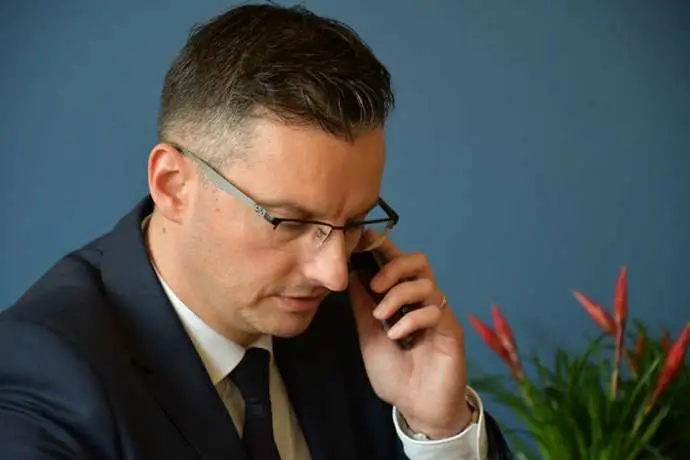STA, 14 December 2018 - Prime Minister Marjan Šarec expressed regret in Brussels on Friday over disunity in Slovenia's position on Catalonia, taking aim at President Borut Pahor for receiving Catalan President Quim Torra for an informal meeting during his visit to Slovenia last week.
"I regret our foreign policy was disunited again despite an agreement that we'll act as one," Šarec said after he discussed the Catalan issue with his Spanish counterpart Pedro Sanchez on the sidelines of the EU summit.
"It's astonishing the conduct of some who have much longer experience working in foreign policy than I have. At least that's what I had been hearing a while ago," Šarec said in a reference to criticism levelled against him in the 2017 presidential race in which he challenged Pahor.
Related: Catalonia’s president calls on region to follow Slovenia’s example
"Considering Mr Pahor's wealth of experience I would expect a different reaction," he said, referring to Pahor receiving Torra for an informal meeting on 6 December.
"You have to know the protocol, who receives whom, and take into consideration the levels of visits," he said. When asked how he interpreted Pahor's decision, Šarec said this was a question to be put to the president.
Šarec said that there was quite a storm in Spain over the matter, but that he and Sanchez had a constructive debate. Sanchez is coming to Slovenia, he said, adding that the relationship between the two countries was very good.
The prime minister repeated the Slovenian government's position on the issue of Catalonia's independence: Spain is a sovereign and democratic country, the Catalan issue is Spain's internal affair and Slovenia's independence cannot be likened with Catalonia's.
He said that Slovenia's independence was made possible by Yugoslavia's 1974 constitution, amendments to the Slovenian constitution adopted in 1989 and a referendum in 1990 in which the turnout stood at 90%.
Related: Slovenian Foreign Ministry to educate Spanish Ambassador on the nature of the country’s independence
He noted that at the time 88.4% of Slovenians opted for independence, which made the referendum very legitimate, while Yugoslavia was not a democratic country at the time.
The situation in Spain is very different, he said, considering the Spanish constitution does not make independence possible. If they reach some other agreement in the future, it will be a different situation, he added.
Šarec also responded to questions from Spanish reporters today, underscoring that the situation in Slovenia in 1990 could not be compared to the situation in Catalonia today and that Slovenia's conduct was always peaceful and lawful.
He also said that Slovenia was unhappy that its case should be abused in the independence efforts of half of Catalonia's population. "We are legalists and we respect Spain's internal affairs," he told Catalan journalists.
Sanchez did not talk about Torra's visit to Slovenia in Brussels today. However, Spanish diplomatic sources say that Sanchez and Šarec discussed the issue yesterday, that their talk was positive and that the Slovenian prime minister supported the Spanish government.
Torra, who visited Slovenia at the invitation of MEP Ivo Vajgl (ALDE/DeSUS) and former Slovenian President Milan Kučan, caused an uproar in Spain after urging Catalonia in a speech in Brussels on Saturday to follow the example of Slovenia in its push for independence.
Apart from Pahor, National Assembly Speaker Dejan Židan also received Torra informally last week.






